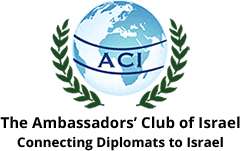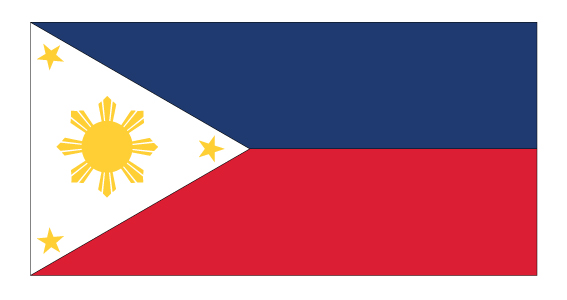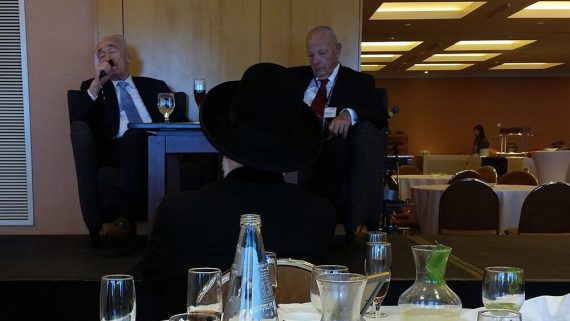Your Excellency the Ambassador of the Philippines,
1. How do you feel since the outbreak of the coronavirus 19 pandemic?
Fortunately, I am doing well as are all of the Embassy personnel; we check in with each other daily on various messaging platforms to make sure that we are all physically healthy and aware of the latest developments from the Philippines and here in Israel.
One of the protocols of the Philippine Foreign Service is to prepare a contingency plan for all possible emergency situations that may arise at your post, so as early as January we had already been discussing the virus spreading in Wuhan, China and what might happen if the illness reached Israel. By the time Israel started imposing restrictions, our personnel were fully prepared both physically and mentally to adjust their lifestyle and working habits accordingly.
2. How do you succeed to conduct the embassy work in time of confinement?
At a time like this, I am personally quite thankful to be posted in a country that has embraced technology and has come up with all sorts of innovations that make remote work not only possible, but very productive. Thanks to these innovations, some of our work – attending briefings, meeting with contacts, communicating with our colleagues in the diplomatic corps and with our headquarters in Manila – can be easily done from home.
I also consider it a blessing that many of these technologies are already in daily use. Our personnel regularly communicate and coordinate with each other on messaging platforms, even before the pandemic; we built on that and now use those same platforms to share information, relay instructions, and so on. We’re also constantly on the lookout for new technologies or new ways to use the platforms we already have, to add to our options for working from home.
Of course, there are some parts of our work that really require physical presence, and for these tasks we have had to think about how to get them done without unnecessarily exposing our personnel to health risks. Since we started preparing back in January, we had time to stock up on personal protective equipment such as masks and gloves for personnel who need to meet with clients. We’ve also tapped our local network to help us reach out to places where we cannot physically go – Jerusalem, for example, or Haifa. This was particularly helpful for us during the period of enhanced restrictions, where we were not permitted to move outside of our own cities.
3. What are the goals of your embassy at corona pandemic time?
I would say our goals remain largely the same – maintain our strong relations with the State of Israel, look for opportunities to broaden and deepen the bilateral partnership, and take care of our nationals who live and work here.
Due to the nature of the crisis, however, we have shifted most of our resources to focus on the protection of our nationals – particularly those whose employment or sources of income have been negatively affected by the pandemic. We also had to make sure that Filipinos in Israel working as live-in caregivers were properly informed about the new restrictions and the precautions they should be taking – in some cases, we called people up personally to relay the information.
We are also concerned about the economic fallout of the pandemic, which will certainly affect bilateral trade, two-way tourism, and labor relations. For example, the deployment of the first batch of hotel workers from the Philippines had to be delayed indefinitely as the hotel industry in Israel has suffered serious losses. We have also halted the deployment of caregivers due to travel restrictions in the Philippines and in Israel. Thousands of Christian pilgrims also had to postpone their travel to the Holy Land even during holy week because of the pandemic. At the moment, we are focusing our efforts to ensure that those with caregiving jobs are able to hold on to their employment in Israel. After all, they play a critical role in taking care of elderly Israelis who are the most vulnerable to the deadly coronavirus.
4. How is your country coping with the pandemic?
It’s a little early to tell, since we are still expanding our capacity to test. Once we are able to implement community-based testing, particularly in large and densely-populated urban areas such as Metro Manila, we will have a better idea of how the virus has affected us and what we need to do to improve current efforts.
What we’re seeing emerge is a very dynamic feedback loop between the national government and the local government units (LGU), where the national government issues guidelines and the LGUs then come up with ways to implement those guidelines given their unique circumstances.
We’ve also seen our private sector and citizens mobilize to extend help however they can – from designing and producing personal protective equipment, to providing free meals and transportation for frontline healthcare workers, to providing places for the homeless to take shelter. We call it bayanihan, this act of coming together as a community to care for each other. Filipinos are very social people, so the restrictions of a quarantine – the kind that force us to stay apart and isolated – feel very alien. Bayanihan, I think, is our way of coping. It gives us a way to reach out to one another even when we can’t do it physically.
5. What is the situation of the Filipino community in Israel?
Most Filipinos in Israel are live-in caregivers, so as you can imagine, many are having a very difficult time right now. Not only are they responsible for the personal care and daily activities of a very vulnerable sector – that is, the sick and the elderly – they also have to take extra precautions that restrict them from caring for their own families back home. They can’t send money, for example, or care packages. They can’t tell their families when they will be able to visit them in the Philippines. Some have not been able to leave their employers’ homes for close to a month, due to the restrictions, and that, too, is a very challenging situation.
Again, bayanihan is helping them cope. From within their employers’ homes, or from within their own, our community has been reaching out to each other to check on each other and provide mental and emotional support. We are trying to provide them with ways to manage this situation – online counselling, phone calls so that they can unload their concerns to someone who speaks their language, and information on the virus and how they can protect themselves. The embassy has also distributed, using church and community networks, 1,000 food packs to those in dire need of assistance. We will distribute 1,000 more food packs in the coming weeks.
Most of the Filipinos in Israel are doing well, but want to know how much longer this situation will last. That is probably the most difficult question, because no one has a definite answer.
6. As Dean of the Asian countries represented in Israel what Israel can learn from your countries struggle against the coronavirus pandemic?
Asia, I think, was one of the regions that first felt the full repercussions of Covid-19. While there is a lot of focus now on data-driven policy decisions to combat the pandemic, and rightfully so, I think we have to keep in mind that back in early January some of our governments were being asked to make very difficult decisions while having very little information.
Having said that, there are definitely some best practices that we can all learn from. Vietnam, for example, took very decisive steps early on, placing heightened restrictions on movement and augmenting healthcare resources in the areas where outbreaks happened. They also launched a nation-wide information campaign to educate people regarding the coronavirus and the risks of widespread contamination, so that people understood why these measures were necessary. Their early response helped them contain the infection well within the capacity of their health care system.
We also look to countries like South Korea, which was one of the first countries worldwide to implement mass testing. This policy decision must have been difficult in the early days, because for quite some time South Korea had one of the highest numbers of confirmed cases in the world. Their example, however, has led to the current emphasis on data-driven policy-making: since they were able to gather accurate information on where the virus had spread, and how, they can use that information to come up with policies or plans that target the specific problem without unduly harming other aspects of life, such as the economy.
On that note, I think it’s worth saying that Israel’s response to the pandemic has been very effective, with a slight but very definite flattening of the curve being seen after only three weeks of heightened restrictions. One of the measures of an effective response, in my view, is that casualties are kept to a minimum, because at the end of the day you cannot put a price on human life. I join everyone in hoping that the rate of infections continues to remain under control, and that a cure for this virus can be found as soon as possible.
Nathaniel G. Imperial
Ambassador of the Philippines
to the State of Israel






